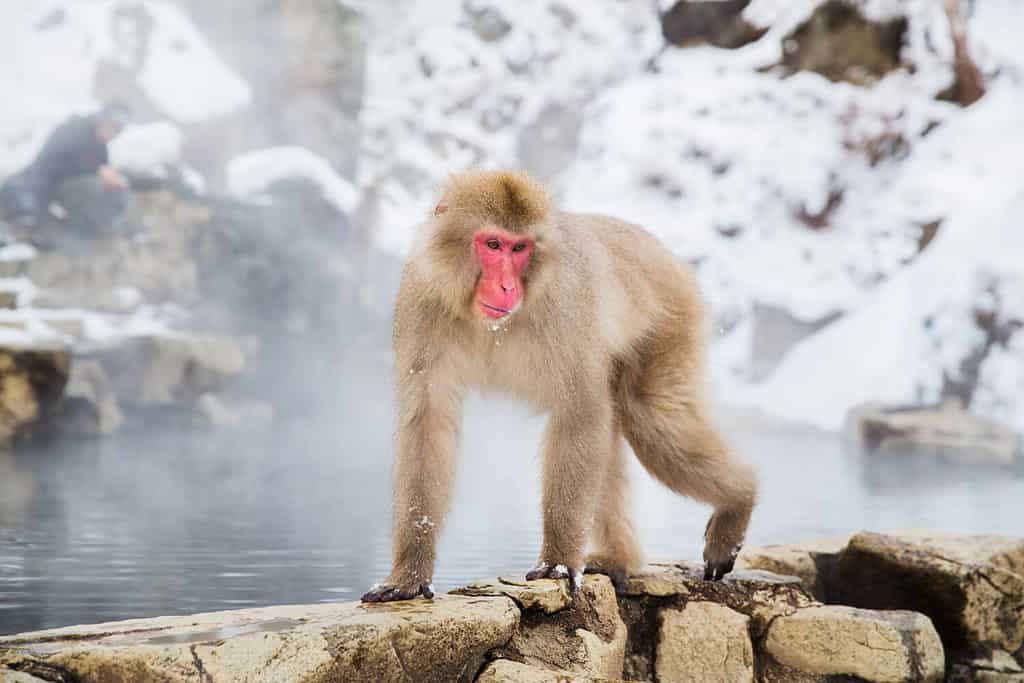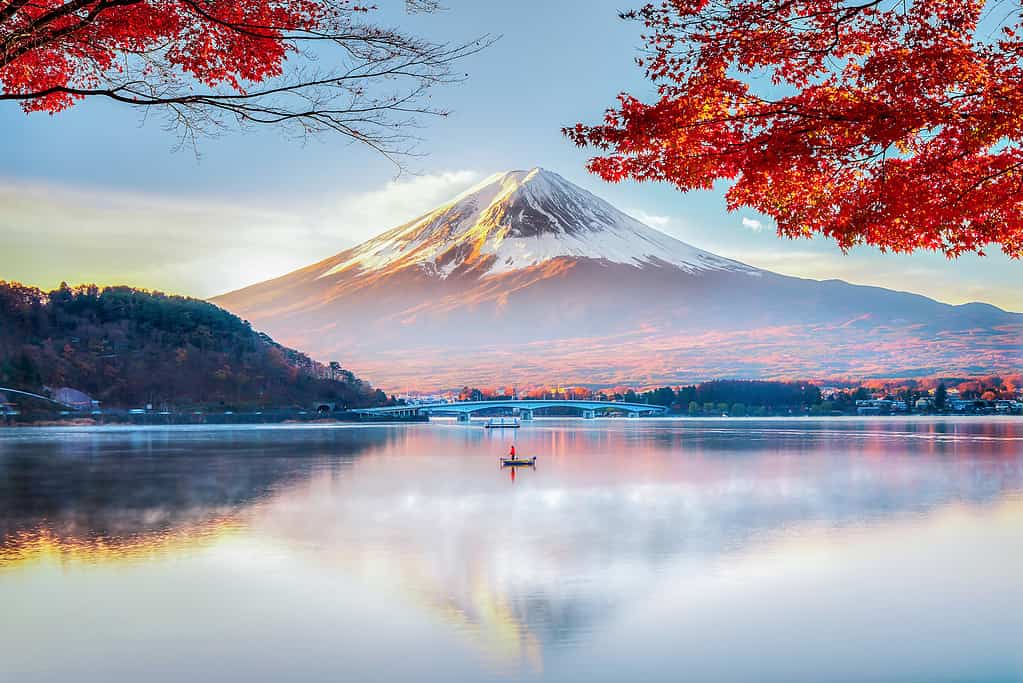Quick: close your eyes and picture snow. What country are you in? If you’re from a country that gets snow, you probably answered “home”. But if you were wondering what the snowiest country in the world is, where would you guess? Probably not the Southern Hemisphere of Earth. The vast and wintry wilds of Canada might occur to you; or the blizzardy fjords of the Nordic nations. Maybe even the Arctic climes of Russia’s Siberian Desert. Yet none of these white-capped countries can claim the title of World’s Most Snowed-Upon. It may surprise you to learn that Japan is the country that gets the most snow on the planet! Let’s discover more about this Asian island nation, where a surprising amount of snow — the world’s most — falls annually.
Japan Gets More Snow Than Any Other Country
There’s one group of people who might not be so surprised to learn that Japan is the most snowed-upon country on Earth: ski bums. Along with snowboarders, they flock to Japan’s many ski resort areas such as Honshu and Hokkaido. Japan has two key conditions that cause snow to fall and accumulate in record-setting amounts. It’s a small country surrounded by ocean; and it has immensely tall mountains. Climbing as high as 10,000 feet, these mountains are prime targets for snowfall. Major weather events broil up from the Northern Pacific Ocean and head for the mainland. As they do, cold storm clouds become trapped within these mountain ranges. Then, they dump huge amounts of snow as they dissipate.

The Snow Monkey loves the natural hot springs in the snowy mountains of Japan.
©Ground Picture/Shutterstock.com
Japan: Snowy at Every Elevation
The higher the peaks, the more snow they get. The most elevated terrain in Japan is estimated to receive as much as 1,500 inches of snow annually. That makes this the snowiest place in the snowiest country on the planet!
Even well below that superlative height, snowfall in Japan can be extreme. In Aomori, snow reporting station Sukayu Onsen records 695 inches of snowfall per year — the highest recorded fall of any reporting station in existence.
The “ocean effect” of snow systems banging up against the Japanese Island spares no altitude. Go even closer to sea level, and snowfall remains quite incredible: if you’ve enjoyed a Japanese imported beer lately, you might be familiar with the word “Sapporo”, named for the city where it is produced. Its denizens have good reason to warm up with a beverage: they get 20 feet of snow in a run-of-the-mill year. In Tuskayama, 68 inches has been recorded in just one day.
It Snows on the Animals, Too
This nation is so associated with snow, there is even a primate native to Japan with “snow” in its name: the Japanese Macaque, better known as the Snow Monkey. These surprising, red-faced apes can brave the snowy cold — but they also love to hang out in the natural hot springs that sometimes occur in the icy mountains.

The Ocean Effect dumps huge amounts of snow in Japan’s mountains.
©DoctorEgg/iStock via Getty Images
Ocean Effect: The Reason Japan Is the Snowiest Country in The World
Japan, as we’ve said, is an island on the coast of the Continent of Asia. It lies West of the Pacific Ocean and East of the Sea of Japan and Siberia — the coldest part of Russia. The Pacific Ocean is comparatively warm — especially compared to Siberia. During the winter months, masses of cold air are pushed Eastward from Siberia, across the warmth of the Japanese Sea. This forms a natural phenomenon in which massive amounts of water become vapor and are absorbed upward into the icy air masses. In short, immense storm clouds are born, and continue their journey East to Japan.
Once over land, these clouds begin to precipitate major amounts of snow. Abutting the Japanese Alps, their progress is halted and the clouds are forced up to the very highest altitudes. There, the conditions are set for the clouds to snow out — dropping all the precipitation they have left before being blown away by the gales.
Similar Phenomena to The Ocean Effect in Japan
There is such a thing as the Lake Effect and Sea Effect. But as you can imagine, the Ocean Effect, pulling from a larger and in this case warmer water body, is all the more powerful. Taken together, these conditions make Japan the most snowed-on country in the world.
The Sea Effect is observed in England, when cold air from the European Continent crosses the (relatively) warm North Sea, and in Turkey, which sees one or more major snow events annually. These are caused by cold air masses moving across the warmer Black Sea.
The photo featured at the top of this post is © iStock.com/vichie81
Thank you for reading! Have some feedback for us? Contact the AZ Animals editorial team.






